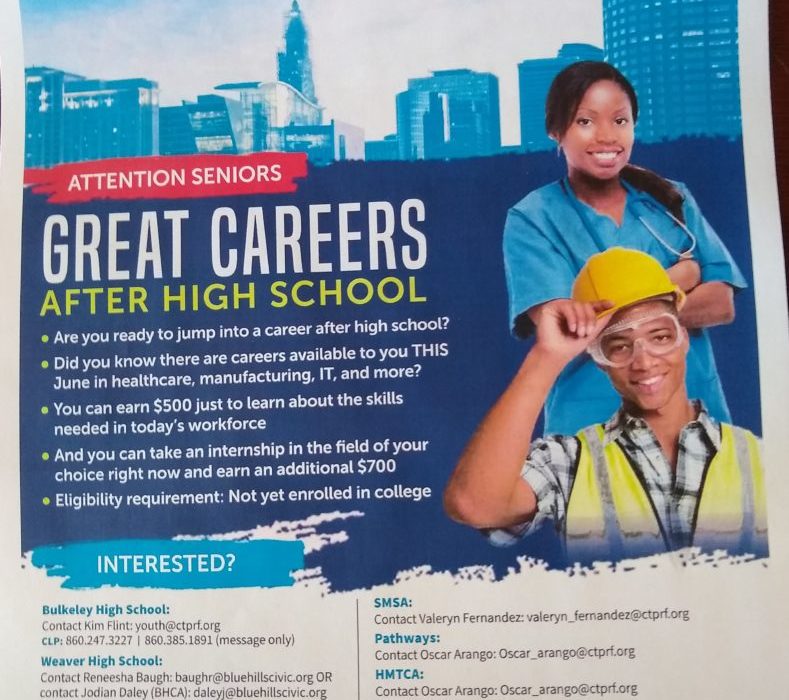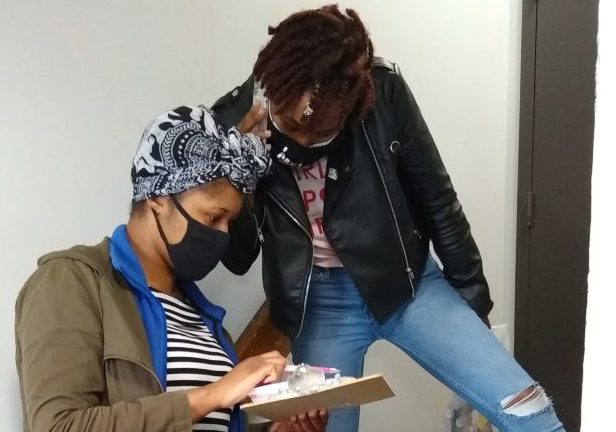Class of 2021 Update
ALL IN! Partnerships Deepen
The Hartford Student Internship Program (HSIP+) Class of 2021 program has built new levels of collaboration and relationship building among high school counselors and staff from Hartford nonprofits. Designed to connect Hartford Public Schools seniors who have no post-secondary plan to a career pathway program before they graduate, the original goal to reach 300 students has proven challenging.
Community-based organizations’ staff has reached out to students by phone, email, text and home visits to help set them on the path to a productive summer and career prospects. So far, 73 seniors have joined the program, and community partners are working hard to reach more. (The revised goal is 100-150 students enrolled.)
With financial support from corporate and philanthropic sponsors, we are accomplishing what the ALL IN! Coalition for College and Career Readiness set out to do: turn siloed programs and players into a tight net that can catch students before they fall through any cracks and help them advance through the talent pipeline. While people bemoan Hartford’s “resource problem,” this project has addressed Hartford’s “coordination problem” and brought stakeholders together to patch a hole in the safety net.
Progress Thus Far
• 73 active participants in the program.
• 28 additional applicants in the system who are being vetted.
The ALL IN! Coalition for College and Career Readiness, with financial support from corporate and philanthropic sponsors, has been working with a team of people to identify HPS seniors without post-secondary plans and get them into the HSIP+ Class of 2021 effort. The program offers students who sign up a chance to earn money and workplace skills. Once students take a couple of virtual workshops, for which they’re paid, they’re eligible to apply for paid internships and summer jobs. The Coalition set out with a goal of reaching 300 students but that proved too ambitious. The project is being implemented by partner organizations – Capital Workforce Partners, BHCA and CLP.
This pandemic has drawn attention to the fact that students’ relationships with staff at school and adults outside of school are not strong enough. Too many students feel disconnected from their schools. We’d like to use this experience with our partners to ensure students have deep connections with caring adults and with programs that can help them advance, despite the challenges they face.
While COVID-19 has shown a spotlight on the holes in the net, we can take this opportunity to patch and reinforce the net long after the pandemic urgency fades. We’re grateful to our financial sponsors: Hartford Foundation for Public Giving, the City of Hartford, The Travelers Foundation, The Hartford, Social Venture Partners, Liberty Bank and Lincoln Financial.





